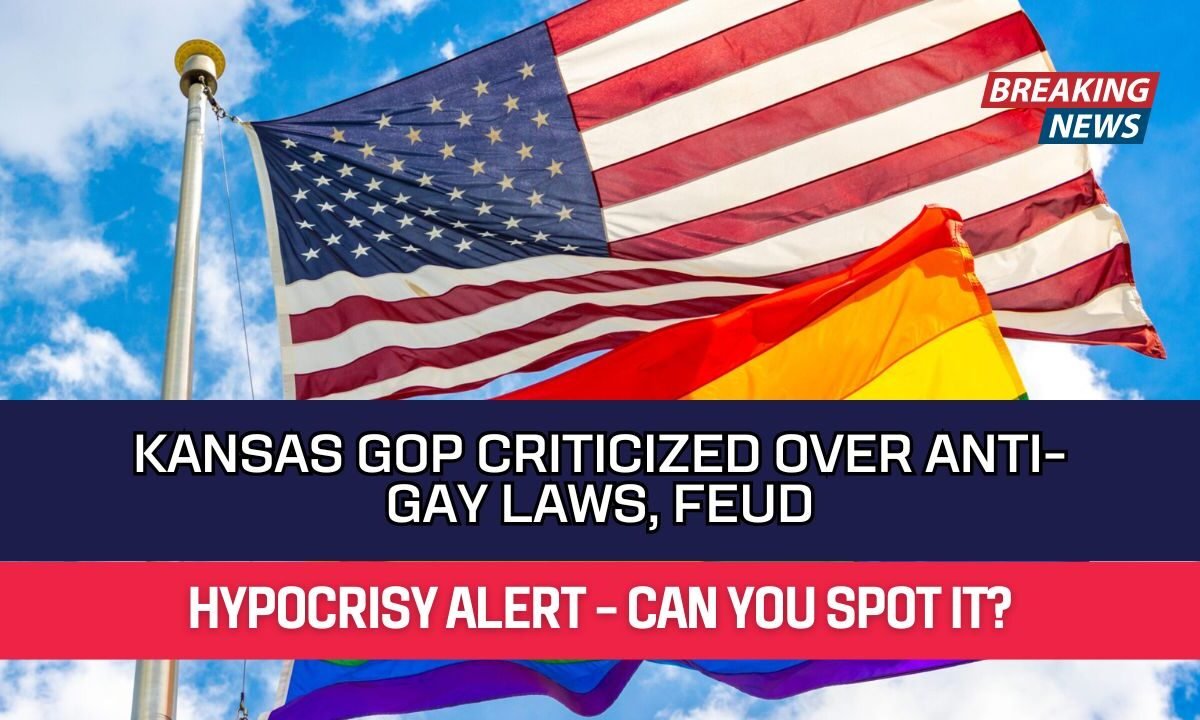Kansas politics has been rocked by a heated public dispute that highlights years of anti-gay policies and political double standards. At a state fair fundraiser, a confrontation between current and former Hutchinson representatives escalated into accusations of homophobia and hypocrisy.
The exchange has reignited debate over the Kansas GOP’s long history of opposing LGBTQ rights while now expressing outrage over alleged discriminatory remarks.
The Fundraiser Confrontation
The incident unfolded when State Rep. Kyler Sweely (R-Hutchinson) accused former Rep. Jason Probst (D-Hutchinson) of making “homophobic remarks” while “reeked of alcohol.” Probst denied the severity of the claims, calling them exaggerated.
While the two accounts differ, many observers note that Kansas Republicans have rarely shown concern for homophobia before—raising questions about political motives.
Kansas GOP’s Anti-LGBTQ Record
For years, the Kansas GOP has pushed laws and policies targeting LGBTQ individuals, especially transgender youth. Here are some key examples:
| Year | Action Taken by Kansas GOP | Impact |
|---|---|---|
| 2025 | Banned use of preferred pronouns in state employee email signatures | Reduced visibility of gender identity respect in government communication |
| 2025 | Passed bill blocking transgender youth from gender-affirming care | Removed medical options for vulnerable minors |
| 2024 | Rejected bill to recognize same-sex marriage in state statutes | Kept discriminatory laws in place |
| 2024 | Proposed party platform defining marriage as only between men and women | Excluded LGBTQ marriages |
| 2024 | Passed bill labeling any depiction of same-sex couples as pornography | Criminalized positive LGBTQ representation |
These legislative moves show a consistent pattern of limiting LGBTQ rights in Kansas.
Hypocrisy Claims Take Center Stage
Critics argue that Kansas Republicans cannot condemn alleged homophobic comments while actively voting to restrict LGBTQ freedoms. Harassing or insulting someone for their sexual orientation is wrong—but taking away rights through lawmaking is far more damaging.
The GOP’s stance is seen by some as political theater—using LGBTQ issues selectively when it suits their agenda, while ignoring their own history of passing discriminatory legislation.
Probst’s Past Words Also Scrutinized
While the GOP faces heavy criticism, Jason Probst is not without controversy. In 2024, Probst criticized a columnist’s stance on an anti-pornography bill, using the word “hysterical”—a gender-coded term often used to dismiss women. His remarks at the time drew criticism for being dismissive and tone-deaf.
The tension between personal language choices and political records shows how bias and insensitivity can appear across the political spectrum.
The Role of Kansas House Leadership
Kansas House Speaker Dan Hawkins (R-Wichita), who supports traditional marriage and anti-abortion laws, is also Sweely’s boss.
Hawkins’ continued endorsement of policies that define marriage exclusively as between a man and a woman signals ongoing resistance to marriage equality in Kansas.
No One Looks Clean in This Feud
This political feud has been marked by mudslinging on both sides. Probst and Sweely’s confrontation is just the latest example of partisan hostility in Kansas.
Even past jokes from Republican lawmakers about “blowing away” Probst with a tank—which went unpunished—show how deep the animosity runs.
The Kansas GOP’s outrage over alleged homophobic comments is hard to reconcile with its own history of anti-LGBTQ legislation. While any discrimination deserves condemnation, selective moral outrage undermines credibility.
In this feud, neither side emerges spotless—politics in Kansas has once again turned into a stage for personal attacks instead of genuine dialogue about equality, respect, and protecting rights.




